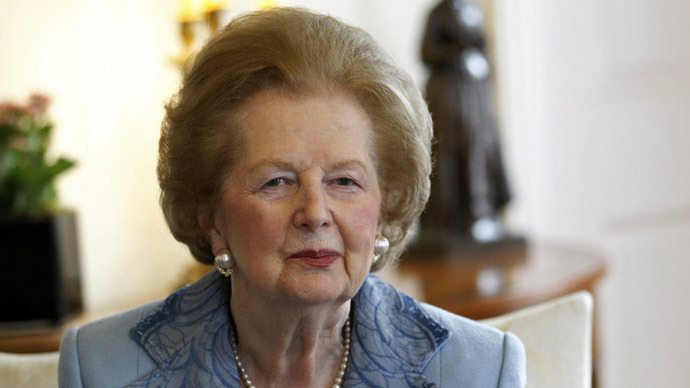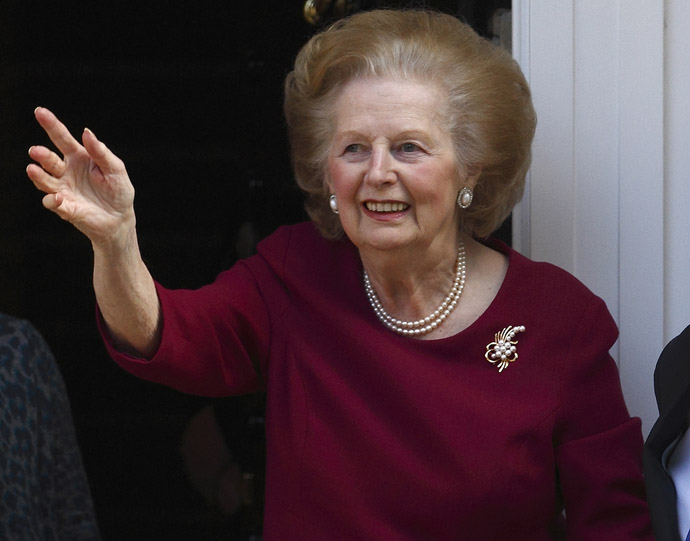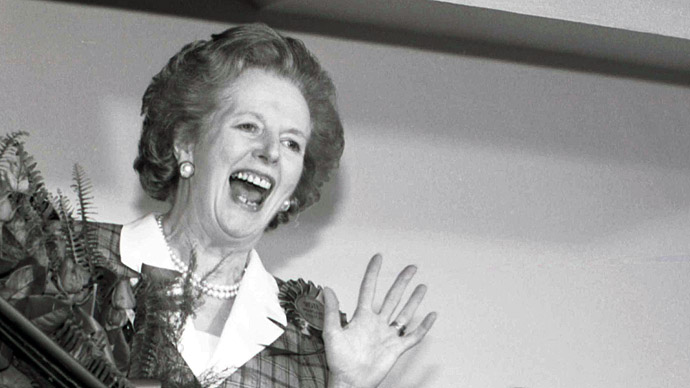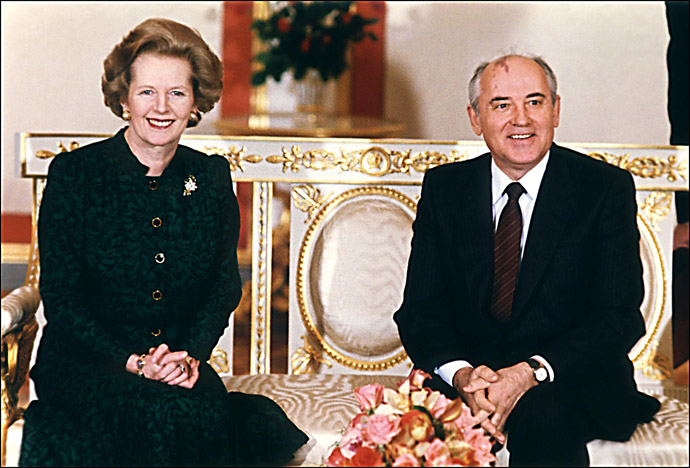Margaret Thatcher dies

Former British Prime Minister Margaret Thatcher has died peacefully on Monday morning following a stroke. She was 87 years old.
The death of the politician, known as the Iron Lady, was
confirmed by her spokesman Lord Bell.
“The Queen was sad to hear the news of the death of Baroness
Thatcher,” Buckingham Palace said in a statement. “Her
Majesty will be sending a private message of sympathy to the
family.”
Britain’s serving Prime Minister David Cameron said on Twitter:
"It was with great sadness that I learned of the death of Lady
Thatcher. We have lost a great leader, a great prime minister and a
great Briton."
The conservative leader held Britain’s highest elected office
between 1979 and 1990, making her the country’s longest-serving
prime minister since the early 19th century.
Thatcher’s time at the helm saw a tense decade of the Cold War. Her hawkish foreign policies were closely aligned with those of US President Ronald Reagan, when the NATO alliance decided to deploy ballistic and cruise missiles in Western Europe to counter the Soviet SS-20 systems. It was the Soviet press that bestowed on her the nickname ‘Iron Lady.’
Despite her principled stance, she had a productive diplomatic relationship with her Soviet counterpart Mikhail Gorbachev, a man she famously said she "liked" and could "work with" upon meeting him in 1984 - in contrast to the previous, stiff Politburo chiefs.
Thatcher’s peace through strength belief eventually led to Intermediate-Range Nuclear Forces Treaty in 1987, while in November 1988 she declared the end of the Cold War and the beginning of a new “relationship much wider than the Cold War ever was.”
"We gradually developed personal relations that became increasingly friendly," Mikhail Gorbachev said upon hearing of her death. "In the end, we were able to achieve mutual understanding, and this contributed to a change in the atmosphere between our country and the West and to the end of the Cold War."

The worst crisis of her time in power however was a war, not against any communist state, but against Argentina over the disputed Falkland Islands. The British won the war, and Thatcher’s waning popularity surged, securing her second term.
Thatcher was also a staunch Eurosceptic. Her reluctance to
integrate closer with the continent made Britain’s relations with
European allies distinctively frosty.
Domestically, the prime minister launched sweeping economic
reforms, which included deregulation, privatization of state-owned
companies and undermining the influence of trade unions.
The policies promoting competition, private enterprise and
self-reliance, labeled ‘Thatcherism’, revitalized the British
economy. But they also took their toll on less-competitive Britons,
taking jobs, alienating the poor and decimating entire industries,
such as mining.
In 1984 she barely dodged an assassination attempt by the Irish
Republican Army, which bombed her Brighton hotel and nearly killed
the entire British cabinet. Within hours of the attack she gave a
scheduled address at a party conference.

Thatcher’s third term saw major riots over a new local tax,
known as the “poll tax”. The unpopular measure sent her support
bottomward.
Thatcher resigned her premiership and position as Tory party
leader amid Conservative disaffection, with low approval ratings of
her cabinet and the possibility of losing to Labor. She regarded
her ousting as a betrayal.
She remained an MP for two more years and continued to be an
active public figure for a decade more, serving in the House of
Lords until doctors advised her to retire in 2002 after several
minor strokes. Her later years were marred by progressive dementia.
She rarely appeared in public.













